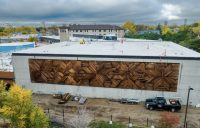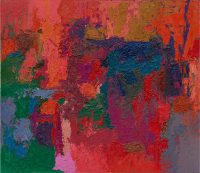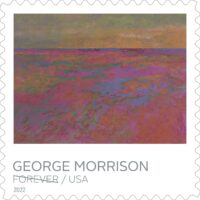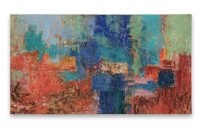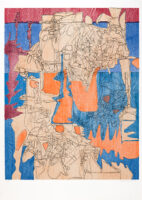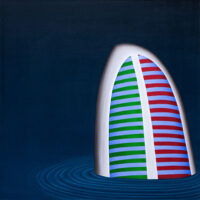George Morrison (1919–2000) (Ojibwe) was a celebrated abstractionist whose six-decade career spanned painting, drawing, prints and sculpture. He responded to phenomenology of place, embracing surrealist principles and material immediacy.
In Morrison’s words, “My own work falls in a direction of art that my type of experience and training gives–into the mainstream of the avant-garde of American art. My own sensibilities, the influences, and the attitudes that shaped my art were broad in scope. I have never painted the so-called Indian themes; I have never been social conscious in my painting; I have never tried to prove that I was Indian thru [sic] my art; yet, there may remain deeply hidden some remote suggestion of the rock whence I was hewn, the preoccupation of the textual surface, the mystery of the structural and organic element, the enigma of the horizon, or the color of the wind.”1
Born on the north shore of Lake Superior in Minnesota’s Chippewa City, Morrison was a member of the Grand Portage Band of Chippewa. He studied at the Minneapolis School of Art (now Minneapolis College of Art and Design) (1938–1943) and was awarded both travel and academic scholarships that led him to New York City. There, he studied at Art Student League (1943–1946), and was participant in emergent practices alongside his close colleagues including Louise Nevelson, Franz Kline, Herman Cherry and William de Kooning. Morrison taught art at various institutions in Provincetown (1947–1952) before receiving a Fulbright scholarship to study in Paris and Aix-en-Provence, France (1952). In the dynamic, itinerant decade that followed (1953-1963) Morrison was prolifically drawing and painting as he held teaching positions between East Coast and Midwest universities. As he held longer terms at Rhode Island School of Design (1963–1970), and the University of Minnesota (1970–1983), he began large scale wood collages and totemic sculptures. From 1983 until his passing, Morrison honed the horizon line as he lived and worked at Red Rock, his lakeshore studio home, in Grand Portage, Minnesota.
During his lifetime, he had over fifty solo exhibitions, from his first at Grand Central Moderns Gallery, NYC (1948) to George Morrison’s Horizon, Minneapolis Institute of Art (1998). Morrison’s posthumous solo exhibitions include George Morrison: Drawings and Paintings, 1950s-1960s, David Zwirner, Los Angeles, CA (forthcoming 2024), Traversal, Bockley Gallery, Minneapolis (2023), George Morrison In Focus, Minneapolis Institute of Art (2018), Modern Spirit: The Art of George Morrison, a traveling exhibition to the Plains Art Museum, Fargo, North Dakota, National Museum of the American Indian, New York, and Minnesota Museum of American Art (2013–2015); and Native Modernism: the Art of George Morrison and Allan Houser, Smithsonian National Museum of the American Indian, Washington DC (2004–2005). Posthumous group exhibitions include Stretching the Canvas: Eight Decades of Native Painting, National Museum of the American Indian, NYC (2019–2022); Listening with the Heart: The Works of Frank Big Bear, George Morrison and Norvel Morrisseau, Weisman Art Museum (2000); and Twentieth Century American Sculpture-Exhibit VI, The White House, Washington, DC (1997).
George Morrison’s works are included in numerous public collections including the National Gallery of Art, IAIA Museum of Contemporary Native Arts, National Museum of the American Indian, Smithsonian American Art Museum, Whitney Museum of American Art, The Metropolitan Museum of Art, Minnesota Museum of American Art, Minneapolis Institute of Art, Walker Art Center, Tweed Art Museum, Plains Art Museum, Detroit Institute of Art, and many more.
Morrison’s monographs and exhibition catalogs include: Turning the Feather Around: My Life in Art, by Margot Fortunato Galt (Minnesota Historical Society Press, 1998); Standing in the Northern Lights: George Morrison, A Retrospective, by Katherine Van Tassell (Minnesota Museum of Art, 1990)’ Native Modernism: The Art of George Morrison and Allan Houser, edited by Truman T. Lowe (National Museum of the American Indian, Smithsonian Institution, 2004); and Modern Spirit: The Art of George Morrison, by Kristin Makholm et al. (University of Oklahoma Press, 2013).
Select recognitions include an Honorary Doctorate from Rhode Island School of Design (1991), the Inaugural Master Artist in the Eiteljorg Fellowship for Native American Fine Art (1999), and the United States Postal Service created a Forever Stamp honoring Morrison, featuring five paintings (2022).
The George Morrison Catalog Raisonné Project was established by the George Morrison Estate and Bockley Gallery in 2024. For more information, please visit www.georgemorrison.com.
The George Morrison Estate is represented by Bockley Gallery.
George Morrison, artist statement, January, 1972, Minnesota Historical Society archives.
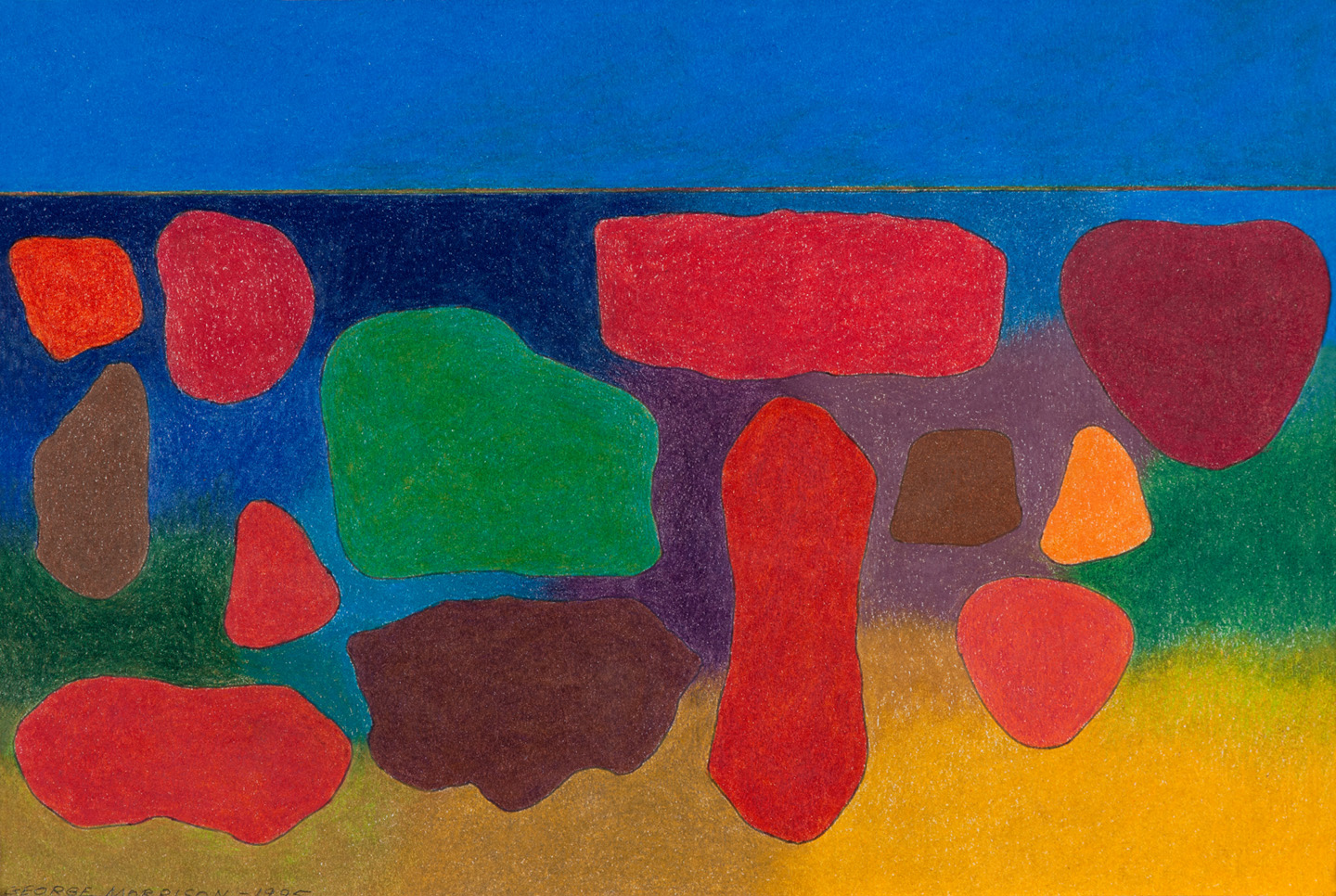
color pencil and ink on paper
7.25 x 10.75
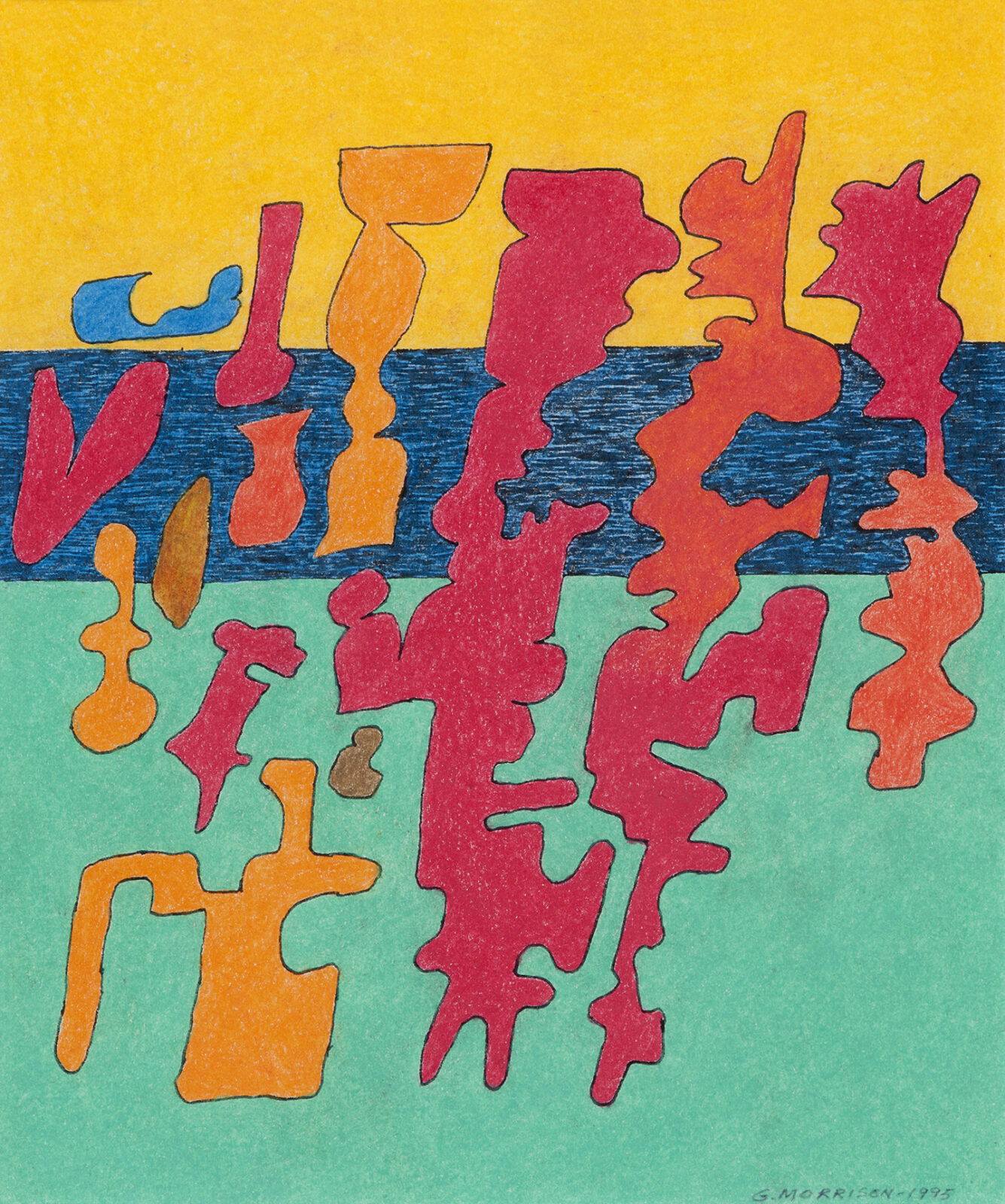
color pencil and ink on paper
9.6 x 8 inches
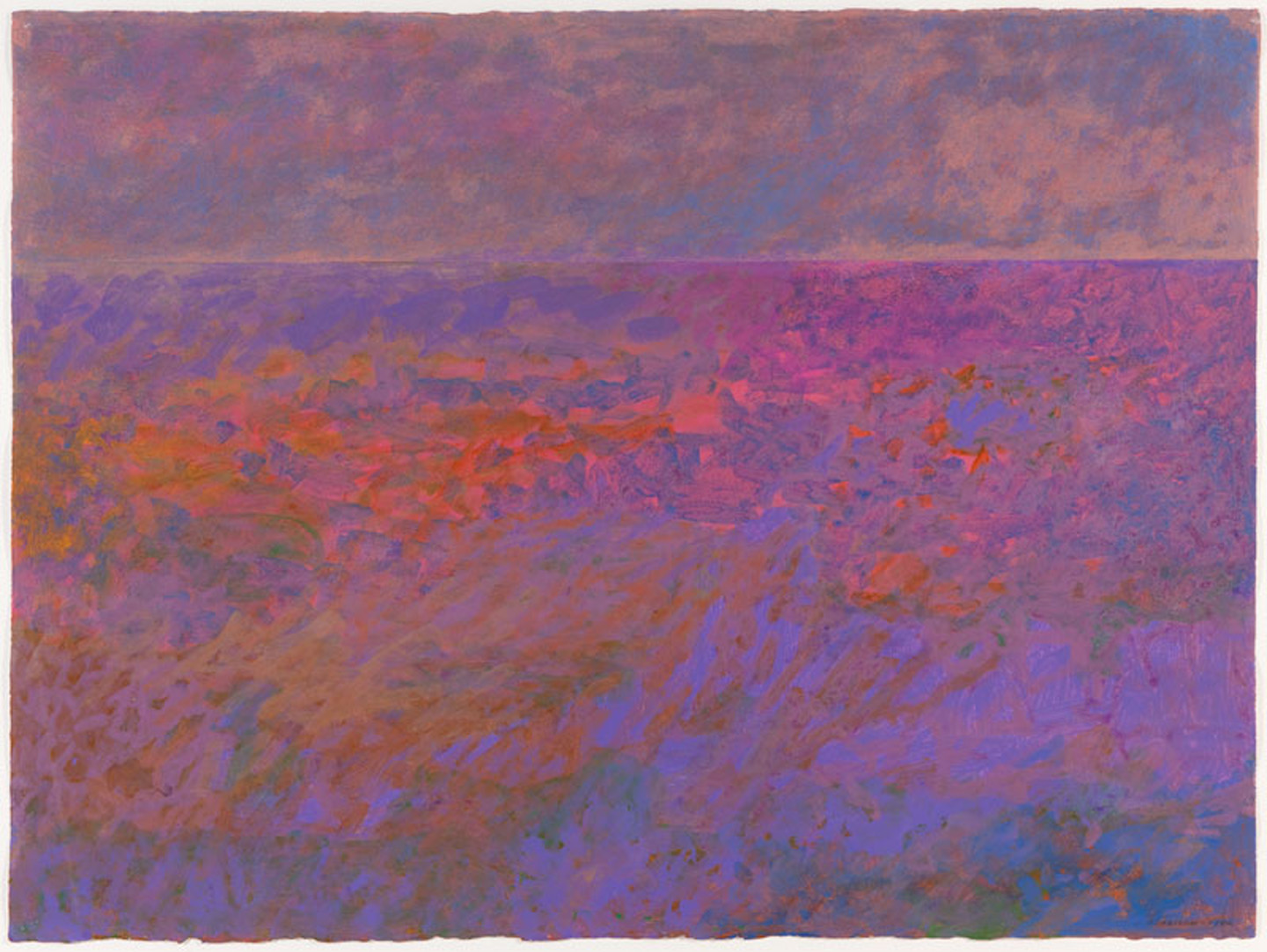
acrylic and pastel on paper
22.4 x 30 inches
Collection Minnesota Museum of American Art
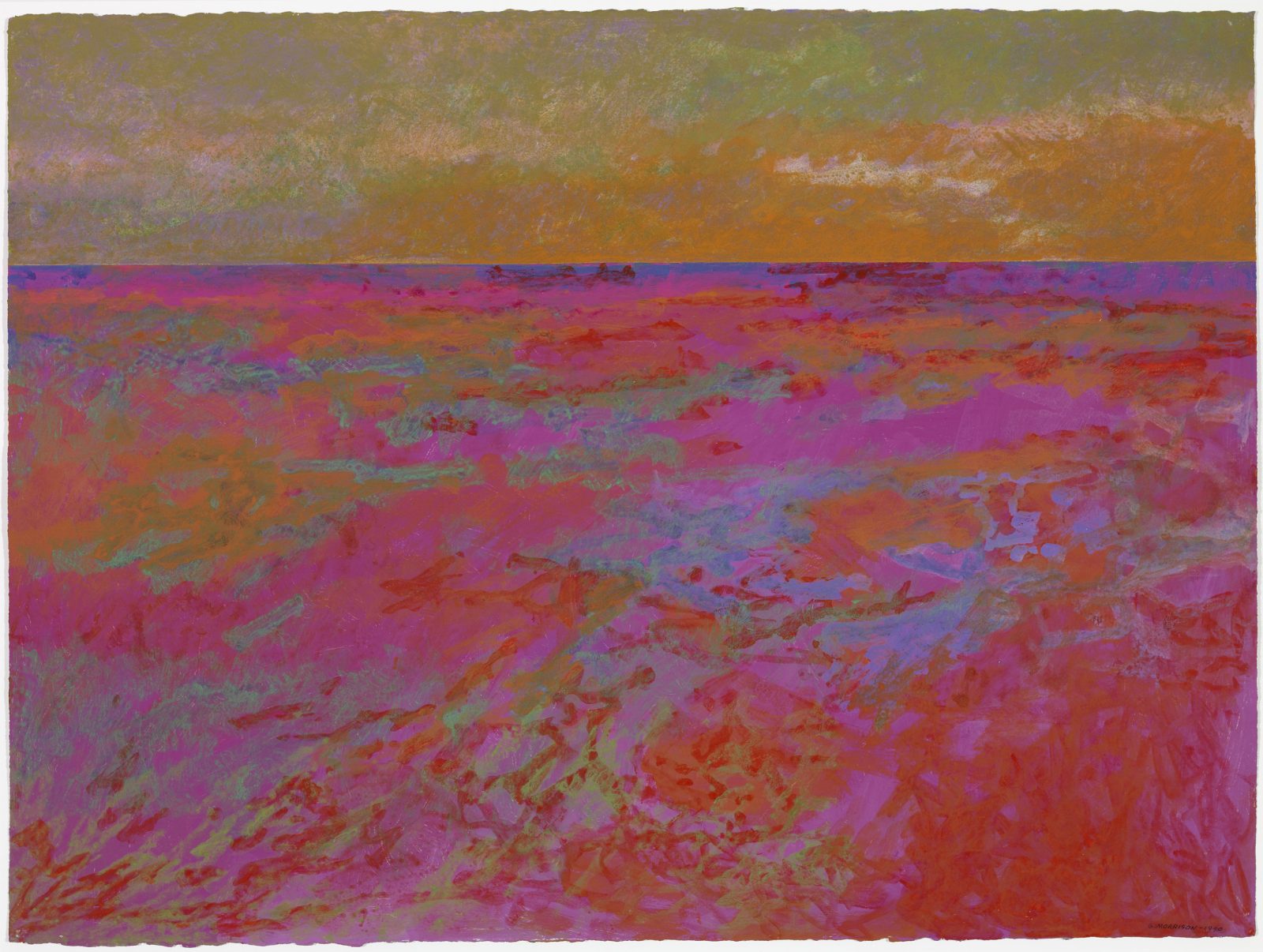
acrylic and pastel on paper
20 x 30 inches
Collection Minnesota Museum of American Art
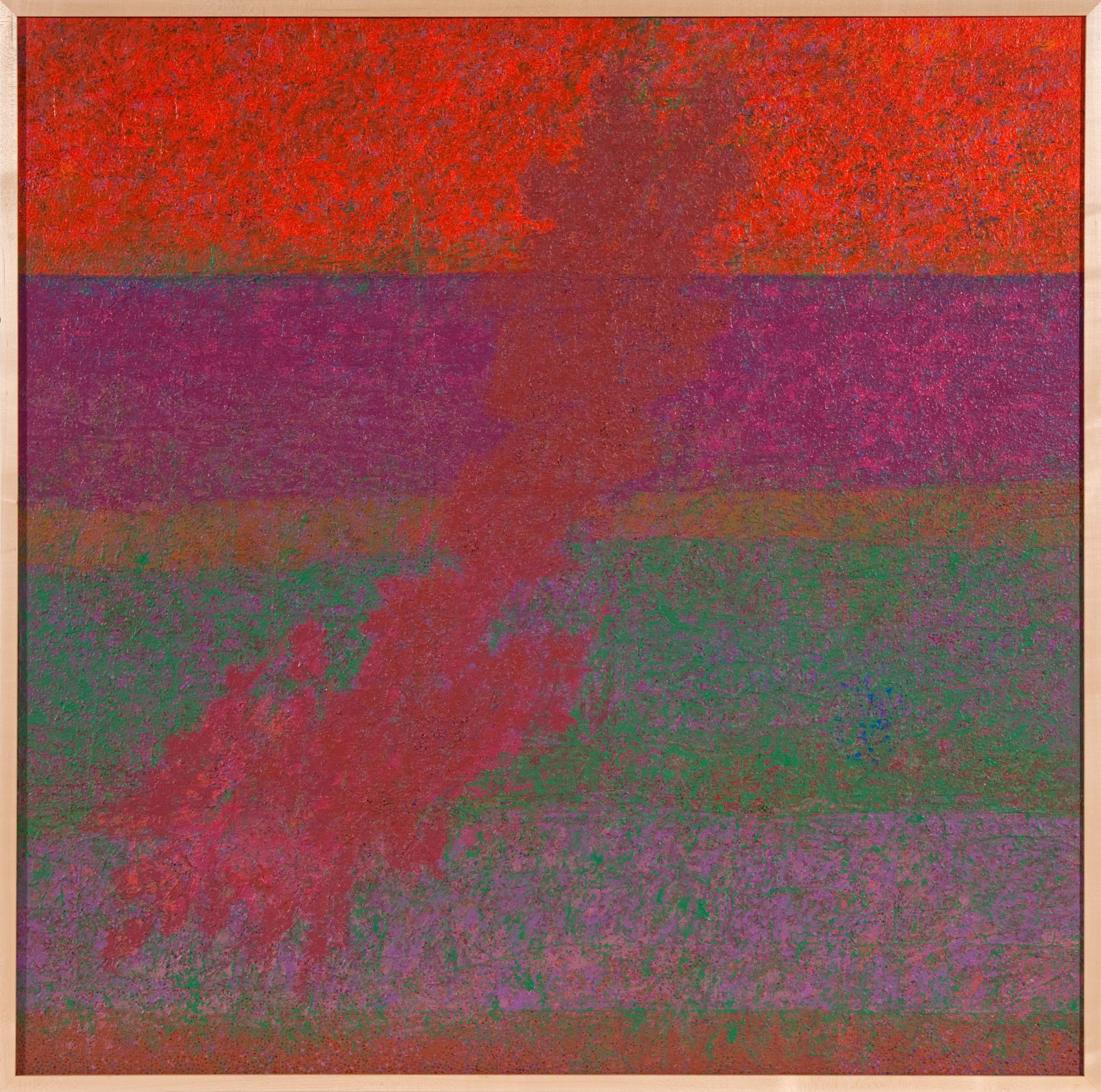
acrylic on canvas
48 x 48 inches
Collection Minnesota Museum of American Art
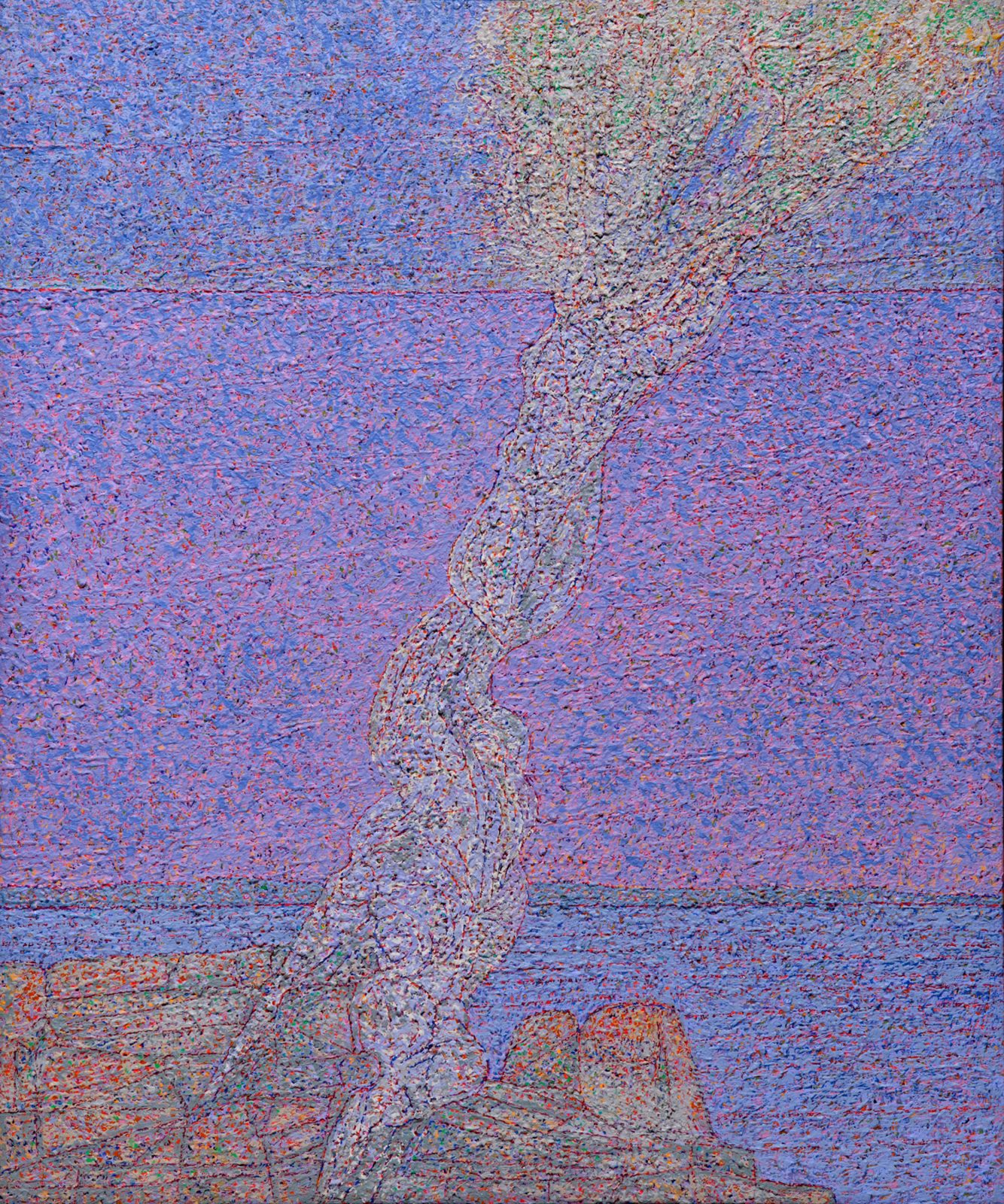
acrylic on canvas
36 x 30 inches
Collection General Mills
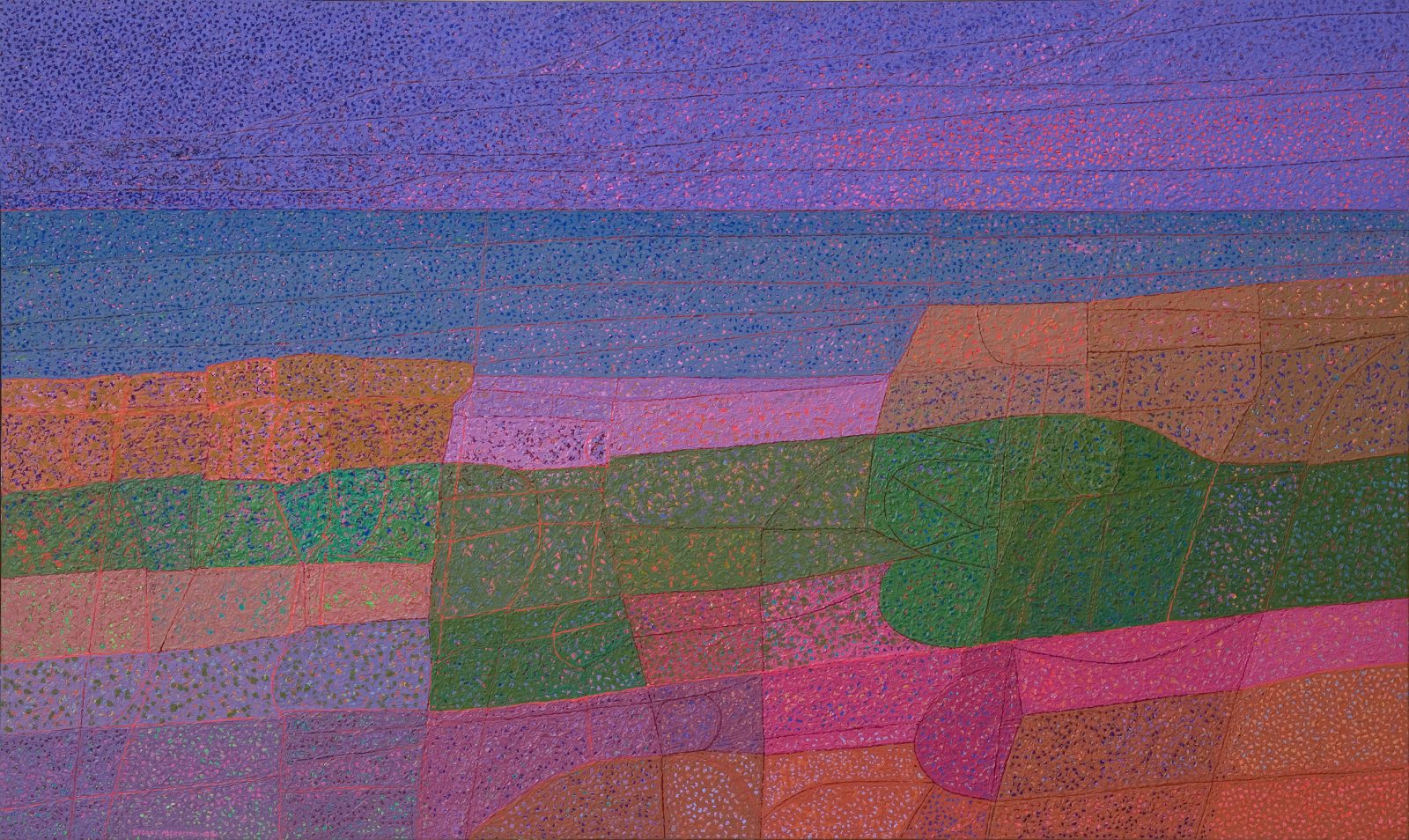
acrylic on canvas
30 x 60 inches
Collection Minneapolis Institute of Art
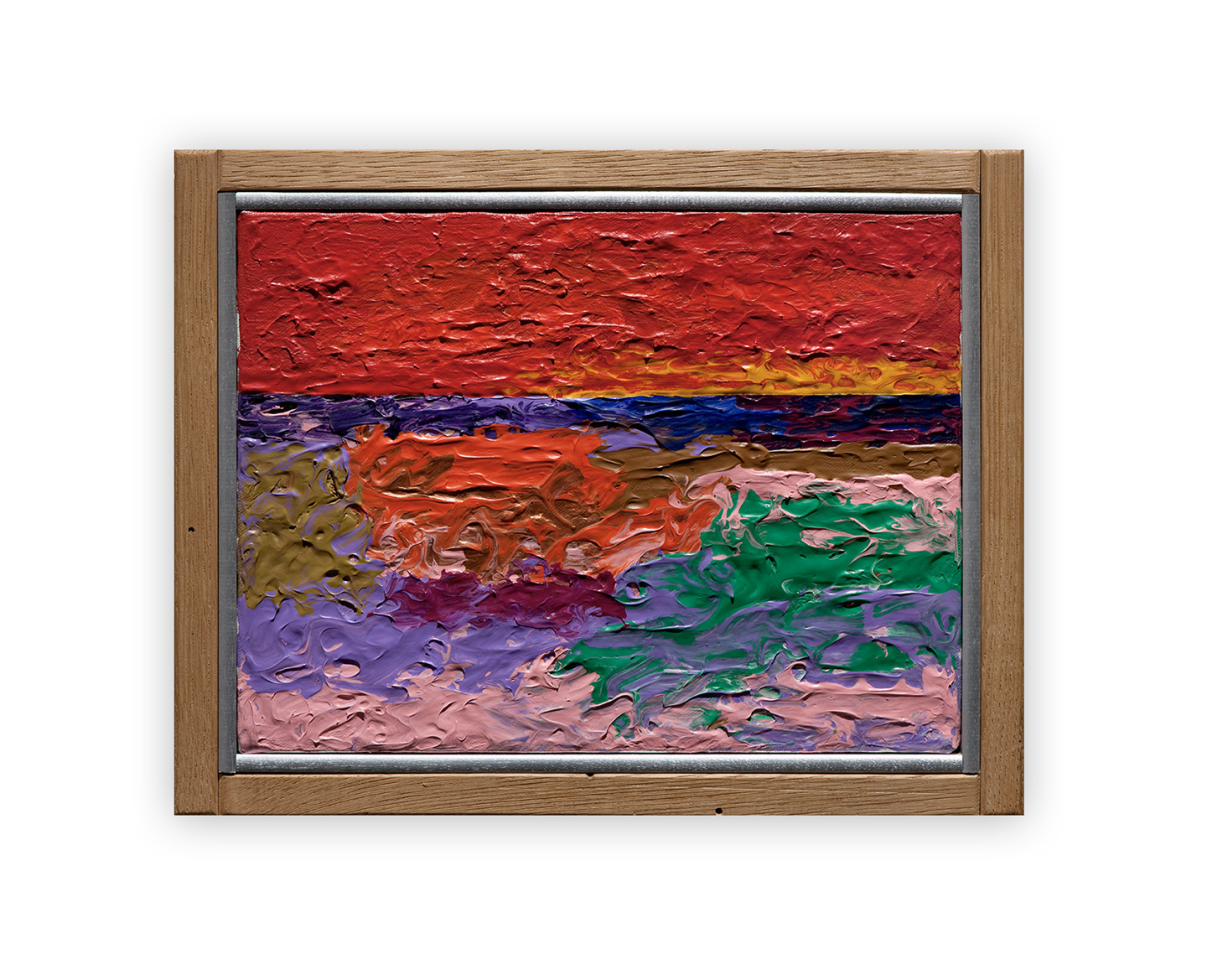
Lake Superior Landscape, 1985
acrylic on canvas
9 x 12 inches
Collection Minnesota Museum of American Art
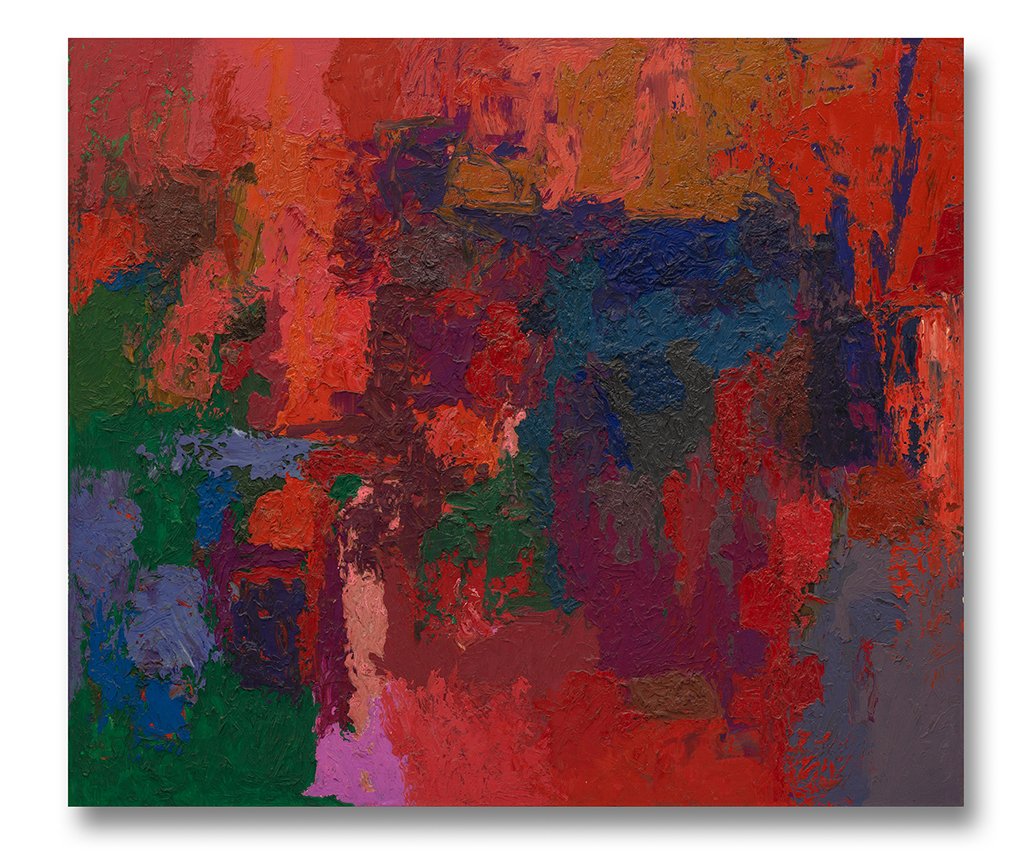
oil on canvas
38 x 44 inches
Collection National Gallery of Art
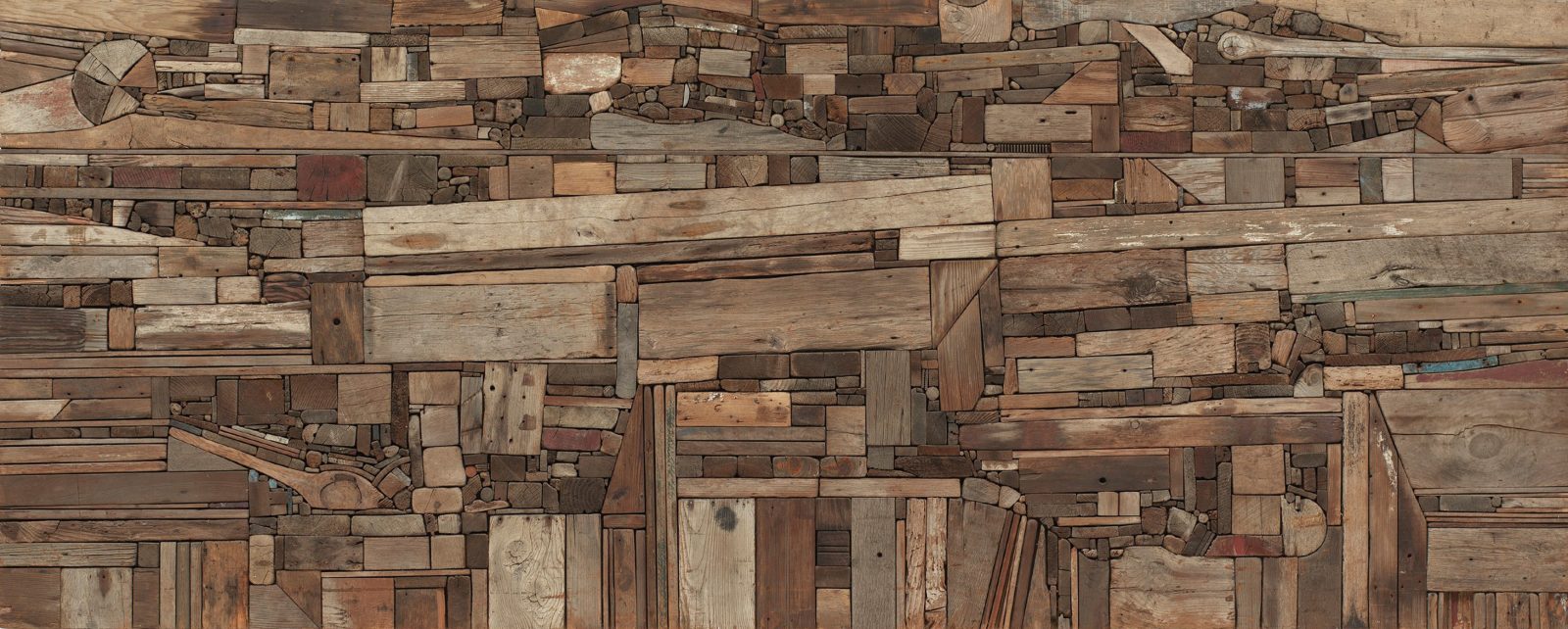
wood collage, found and prepared wood
120 x 48 x 2 5/8 in
Collection Detroit Institute of Arts
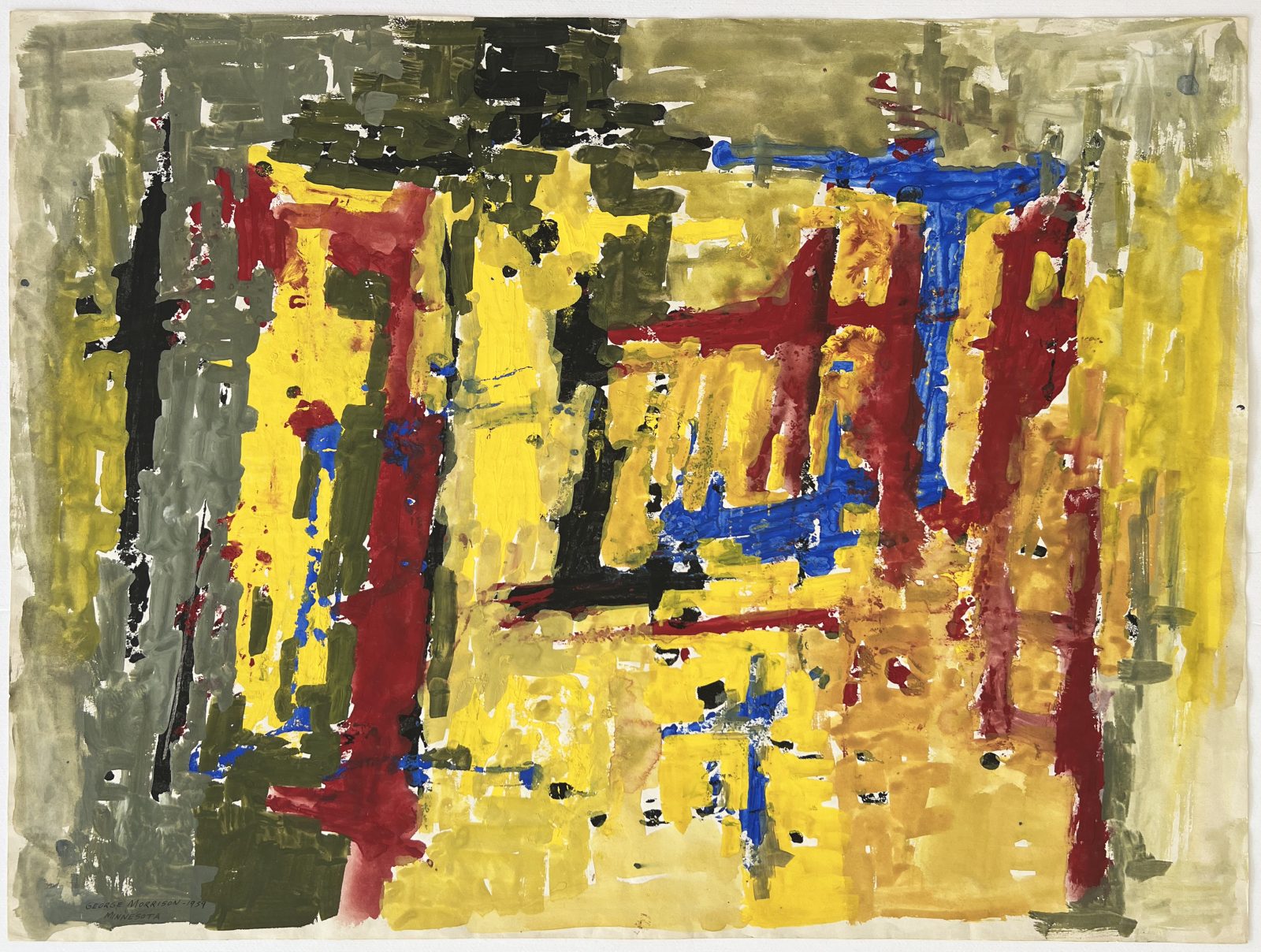
gouache on paper
18 x 24 inches
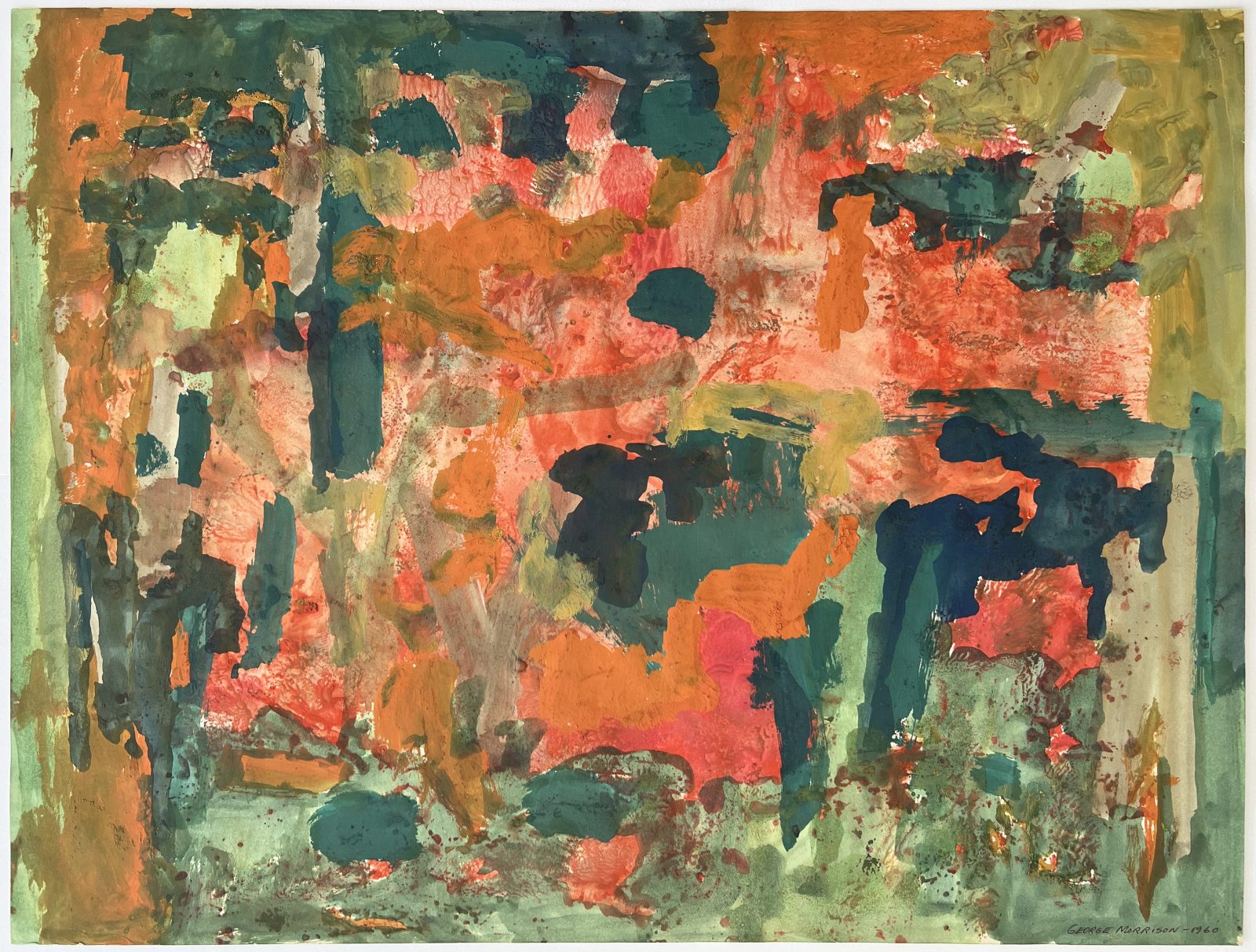
gouache on paper
17.5 x 23 inches
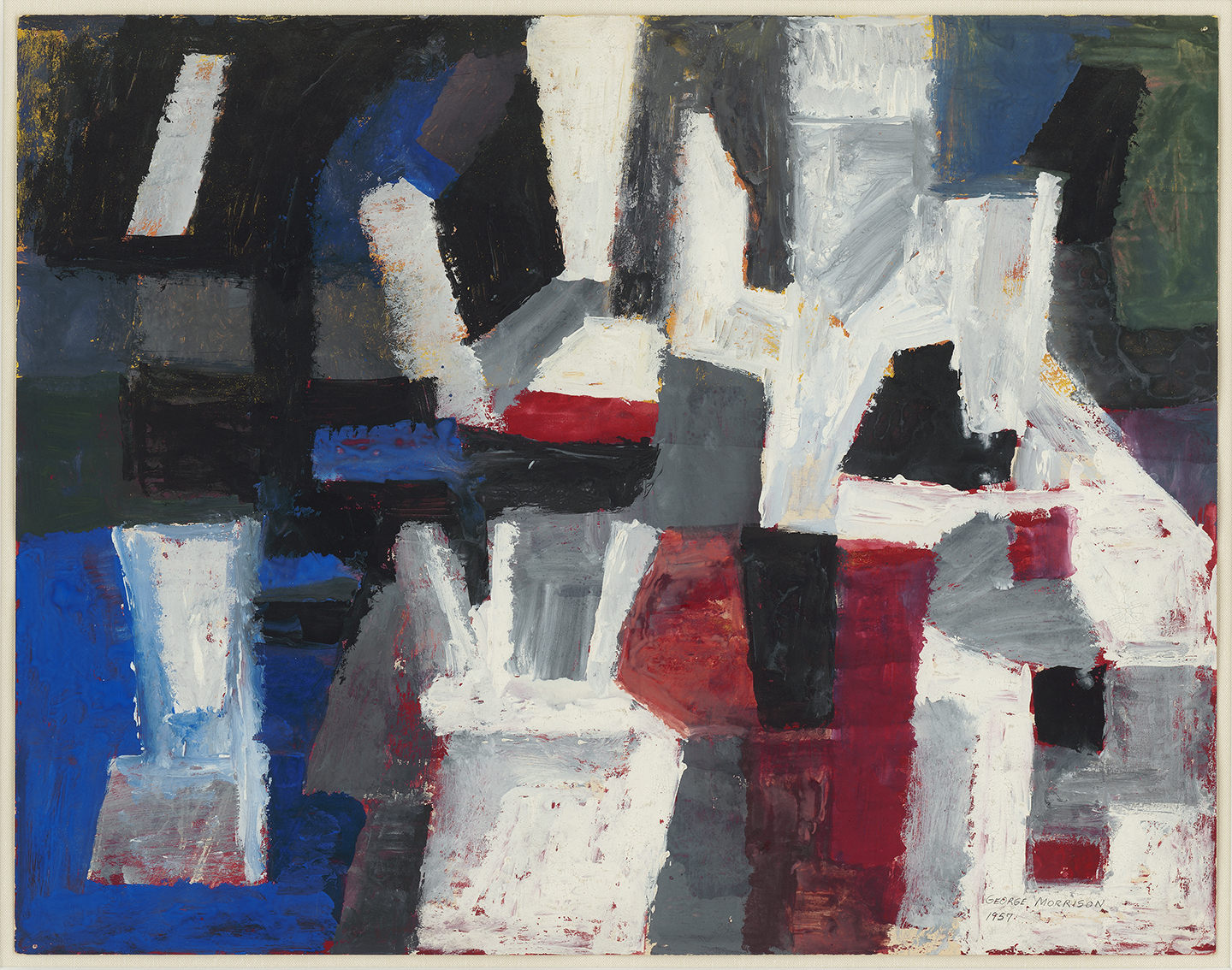
mixed media on paper
17.5 x 22 inches
private collection
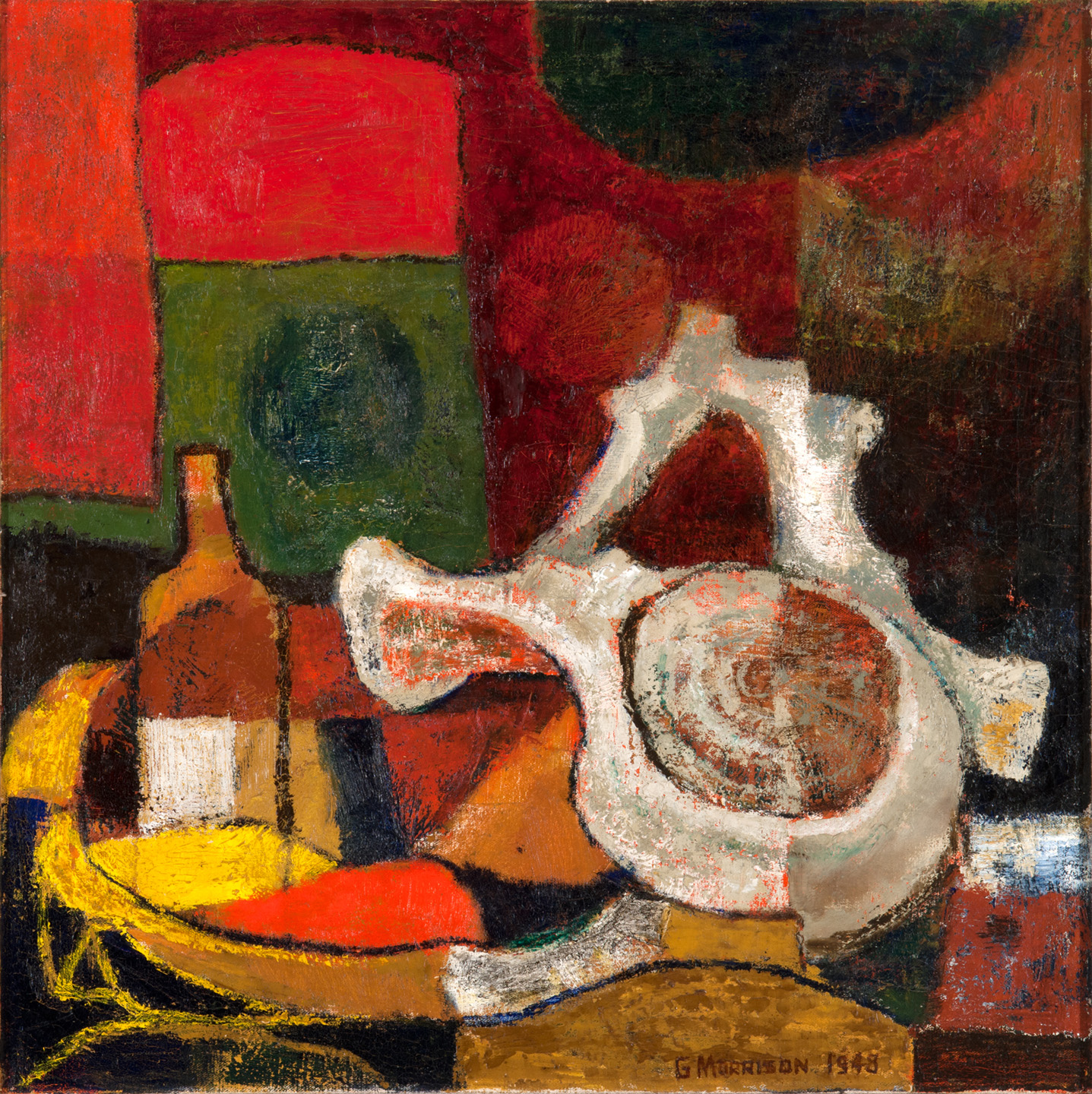
oil on canvas
25 x 24.75 inches
private collection

